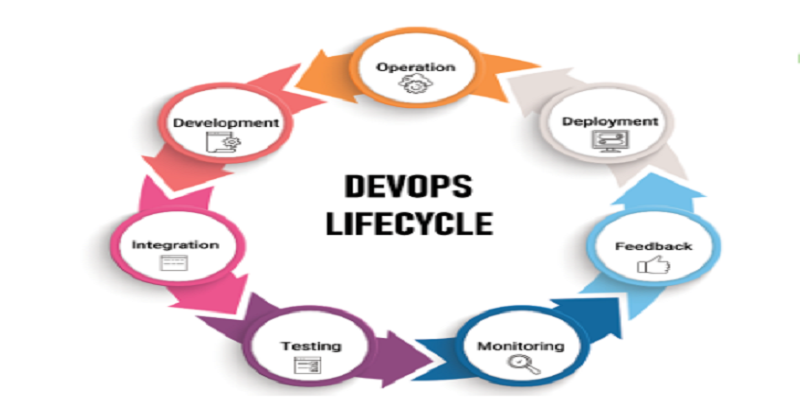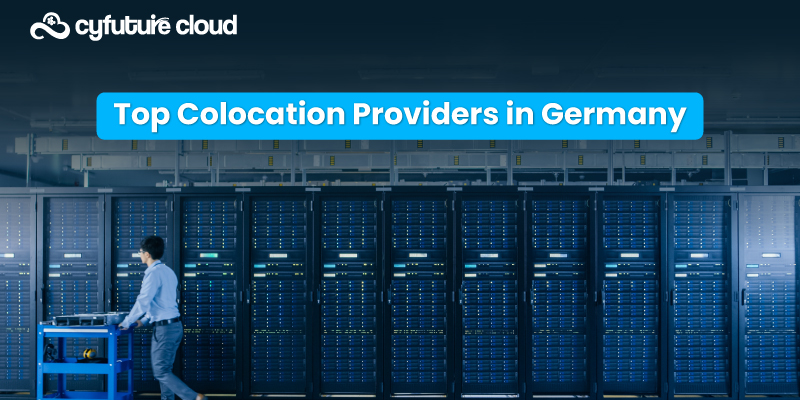Get 69% Off on Cloud Hosting : Claim Your Offer Now!
- Products
-
Compute
Compute
- Predefined TemplatesChoose from a library of predefined templates to deploy virtual machines!
- Custom TemplatesUse Cyfuture Cloud custom templates to create new VMs in a cloud computing environment
- Spot Machines/ Machines on Flex ModelAffordable compute instances suitable for batch jobs and fault-tolerant workloads.
- Shielded ComputingProtect enterprise workloads from threats like remote attacks, privilege escalation, and malicious insiders with Shielded Computing
- GPU CloudGet access to graphics processing units (GPUs) through a Cyfuture cloud infrastructure
- vAppsHost applications and services, or create a test or development environment with Cyfuture Cloud vApps, powered by VMware
- Serverless ComputingNo need to worry about provisioning or managing servers, switch to Serverless Computing with Cyfuture Cloud
- HPCHigh-Performance Computing
- BaremetalBare metal refers to a type of cloud computing service that provides access to dedicated physical servers, rather than virtualized servers.
-
Storage
Storage
- Standard StorageGet access to low-latency access to data and a high level of reliability with Cyfuture Cloud standard storage service
- Nearline StorageStore data at a lower cost without compromising on the level of availability with Nearline
- Coldline StorageStore infrequently used data at low cost with Cyfuture Cloud coldline storage
- Archival StorageStore data in a long-term, durable manner with Cyfuture Cloud archival storage service
-
Database
Database
- MS SQLStore and manage a wide range of applications with Cyfuture Cloud MS SQL
- MariaDBStore and manage data with the cloud with enhanced speed and reliability
- MongoDBNow, store and manage large amounts of data in the cloud with Cyfuture Cloud MongoDB
- Redis CacheStore and retrieve large amounts of data quickly with Cyfuture Cloud Redis Cache
-
Automation
Automation
-
Containers
Containers
- KubernetesNow deploy and manage your applications more efficiently and effectively with the Cyfuture Cloud Kubernetes service
- MicroservicesDesign a cloud application that is multilingual, easily scalable, easy to maintain and deploy, highly available, and minimizes failures using Cyfuture Cloud microservices
-
Operations
Operations
- Real-time Monitoring & Logging ServicesMonitor & track the performance of your applications with real-time monitoring & logging services offered by Cyfuture Cloud
- Infra-maintenance & OptimizationEnsure that your organization is functioning properly with Cyfuture Cloud
- Application Performance ServiceOptimize the performance of your applications over cloud with us
- Database Performance ServiceOptimize the performance of databases over the cloud with us
- Security Managed ServiceProtect your systems and data from security threats with us!
- Back-up As a ServiceStore and manage backups of data in the cloud with Cyfuture Cloud Backup as a Service
- Data Back-up & RestoreStore and manage backups of your data in the cloud with us
- Remote Back-upStore and manage backups in the cloud with remote backup service with Cyfuture Cloud
- Disaster RecoveryStore copies of your data and applications in the cloud and use them to recover in the event of a disaster with the disaster recovery service offered by us
-
Networking
Networking
- Load BalancerEnsure that applications deployed across cloud environments are available, secure, and responsive with an easy, modern approach to load balancing
- Virtual Data CenterNo need to build and maintain a physical data center. It’s time for the virtual data center
- Private LinkPrivate Link is a service offered by Cyfuture Cloud that enables businesses to securely connect their on-premises network to Cyfuture Cloud's network over a private network connection
- Private CircuitGain a high level of security and privacy with private circuits
- VPN GatewaySecurely connect your on-premises network to our network over the internet with VPN Gateway
- CDNGet high availability and performance by distributing the service spatially relative to end users with CDN
-
Media
-
Analytics
Analytics
-
Security
Security
-
Network Firewall
- DNATTranslate destination IP address when connecting from public IP address to a private IP address with DNAT
- SNATWith SNAT, allow traffic from a private network to go to the internet
- WAFProtect your applications from any malicious activity with Cyfuture Cloud WAF service
- DDoSSave your organization from DoSS attacks with Cyfuture Cloud
- IPS/ IDSMonitor and prevent your cloud-based network & infrastructure with IPS/ IDS service by Cyfuture Cloud
- Anti-Virus & Anti-MalwareProtect your cloud-based network & infrastructure with antivirus and antimalware services by Cyfuture Cloud
- Threat EmulationTest the effectiveness of cloud security system with Cyfuture Cloud threat emulation service
- SIEM & SOARMonitor and respond to security threats with SIEM & SOAR services offered by Cyfuture Cloud
- Multi-Factor AuthenticationNow provide an additional layer of security to prevent unauthorized users from accessing your cloud account, even when the password has been stolen!
- SSLSecure data transmission over web browsers with SSL service offered by Cyfuture Cloud
- Threat Detection/ Zero DayThreat detection and zero-day protection are security features that are offered by Cyfuture Cloud as a part of its security offerings
- Vulnerability AssesmentIdentify and analyze vulnerabilities and weaknesses with the Vulnerability Assessment service offered by Cyfuture Cloud
- Penetration TestingIdentify and analyze vulnerabilities and weaknesses with the Penetration Testing service offered by Cyfuture Cloud
- Cloud Key ManagementSecure storage, management, and use of cryptographic keys within a cloud environment with Cloud Key Management
- Cloud Security Posture Management serviceWith Cyfuture Cloud, you get continuous cloud security improvements and adaptations to reduce the chances of successful attacks
- Managed HSMProtect sensitive data and meet regulatory requirements for secure data storage and processing.
- Zero TrustEnsure complete security of network connections and devices over the cloud with Zero Trust Service
- IdentityManage and control access to their network resources and applications for your business with Identity service by Cyfuture Cloud
-
-
Compute
- Solutions
-
Solutions
Solutions
-
 Cloud
Hosting
Cloud
Hosting
-
 VPS
Hosting
VPS
Hosting
-
GPU Cloud
-
 Dedicated
Server
Dedicated
Server
-
 Server
Colocation
Server
Colocation
-
 Backup as a Service
Backup as a Service
-
 CDN
Network
CDN
Network
-
 Window
Cloud Hosting
Window
Cloud Hosting
-
 Linux
Cloud Hosting
Linux
Cloud Hosting
-
Managed Cloud Service
-
Storage as a Service
-
 VMware
Public Cloud
VMware
Public Cloud
-
 Multi-Cloud
Hosting
Multi-Cloud
Hosting
-
 Cloud
Server Hosting
Cloud
Server Hosting
-
 Bare
Metal Server
Bare
Metal Server
-
 Virtual
Machine
Virtual
Machine
-
 Magento
Hosting
Magento
Hosting
-
Remote Backup
-
 DevOps
DevOps
-
 Kubernetes
Kubernetes
-
 Cloud
Storage
Cloud
Storage
-
NVMe Hosting
-
 DR
as s Service
DR
as s Service
-
-
Solutions
- Marketplace
- Pricing
- Resources
- Resources
-
By Product
Use Cases
-
By Industry
- Company
-
Company
Company
-
Company
What impact is DevOps having on cloud development?
Table of Contents
It’s a fact that DevOps and Cloud development merge the practices of development and operations. It brings together the development and operations teams and creates a communication, collaboration, and continuous delivery culture.
With the rise of cloud computing, DevOps has become an essential component of cloud development and has been defined better. They include application development speed-to-delivery to meet the needs of the business units faster; user demands that quickly fold back into the software, and lower costs for development, testing, deployment, and operations.
In this blog, we will first understand what cloud computing and DevOps are; then, we explore how DevOps changes the game for cloud development, why it’s changing, and the future of DevOps and cloud computing.
What is Cloud Development?
Cloud development is a software engineering approach that harnesses cloud computing technologies to produce applications and services that operate in the cloud. Using various tools, programming languages, and frameworks, developers can build and deploy applications on virtual machines offered by cloud providers.
One of the key benefits of cloud development is its scalability. With the ability to quickly adjust resources and manage performance on demand, developers can easily accommodate growing user bases without needing expensive hardware upgrades or manual configuration changes.
This flexibility makes cloud development a cost-effective option compared to traditional approaches, as it eliminates the need for expensive server hardware and complex maintenance procedures.
By leveraging cloud computing technologies, cloud development provides an efficient and effective way to build applications that can scale seamlessly with user demand. Whether building a new product or expanding an existing one, cloud development is a powerful tool for modern software engineering.
What is DevOps?
The traditional software development and operations approach often creates a disconnect between the two teams, resulting in inefficiencies and communication gaps that can lead to mistakes and delays. This is where DevOps comes in.
DevOps is a software engineering practice that unites the development and operations teams, fostering a culture of collaboration and communication. These teams can manage cloud infrastructure more efficiently and effectively by working together.
One of the fundamental tenets of DevOps is automation. Automating repetitive tasks can reduce the risk of human error and improve efficiency. This is particularly important in managing complex cloud infrastructure, as it can help organizations reduce costs, improve efficiency, and increase scalability.
Through a focus on collaboration, communication, and automation, DevOps provides an effective solution to the challenges of modern software development and operations. By embracing DevOps principles, organizations can streamline their processes, deliver products faster, and better meet the needs of their customers.
DevOps new model for cloud development: A step-by-step guide

Step 1: Understand the Cloud Platform
The initial step in charting a cloud development is understanding the cloud platform you will be working on. This includes understanding the different services and features available and the best practices for deploying and managing applications in the cloud.
Step 2: Define the Architecture
Once you have a good understanding of the cloud platform, you can start defining the architecture for your application. This includes deciding on the infrastructure components, such as servers, storage, and networking, as well as the software components, such as databases, web servers, and application servers.
Step 3: Choose the Right Tools
Next, you need to choose the right tools for your DevOps pipeline. This includes tools for building, testing, deploying, and monitoring your application. Many DevOps tools are available, such as Jenkins, GitLab, and Docker, so choosing the right ones is essential.
Step 4: Develop a Continuous Integration and Continuous Deployment (CI/CD) Pipeline
Once you have your tools, you can build your CI/CD pipeline. This involves automating the build, testing, and deployment processes so that you can quickly and reliably release new features and updates to your application.
Step 5: Implement Infrastructure as Code (IaC)
Infrastructure as Code is a methodology that allows you to define and manage your infrastructure using code. This makes it easy to create and manage new resources in the cloud and update and scale your infrastructure as needed.
Step 6: Use Automated Testing
Automated testing is an essential part of the DevOps process. This includes unit testing, integration testing, and end-to-end testing. By automating your testing, you can catch bugs and issues early on in the development process, which helps to reduce the risk of downtime and customer dissatisfaction.
Step 7: Monitor and Optimize
Finally, monitoring your application and infrastructure is essential to ensure everything is running smoothly. This includes monitoring performance metrics, such as CPU usage and network traffic, as well as logs and alerts. With this information, you can identify bottlenecks and optimize your application and infrastructure for better performance and reliability.
DevOps and Cloud Security
Security is a crucial concern for organizations operating in the cloud. Cloud infrastructure is subject to various security threats, including data breaches, cyber-attacks, and other security incidents. DevOps can play a crucial role in ensuring the security of cloud infrastructure.
In DevOps, security is not an afterthought but an integral part of the development process. DevOps facilitates a proactive approach to security by emphasizing early consideration of security. Automation is another critical component of DevOps, enabling organizations to detect and respond to security threats rapidly.
DevOps fosters a culture of collaboration and communication that can facilitate identifying and mitigating security threats. By integrating the development and operations teams, DevOps reduces sharing of knowledge and expertise and the collaborative resolution of security issues. This approach gives organizations a significant advantage in responding to security threats, enabling them to maintain a robust and secure development environment.
This collaboration can help organizations identify security threats more quickly and to respond to them more effectively.
The Future of DevOps and Cloud Development
The future is looking very bright for anyone involved in the DevOps industry. In 2020, the estimated size of the Global DevOps Market was USD 4,311.95 million and was projected to reach USD 5,114.57 million in 2021. With a compound annual growth rate of 18.95%, the market is expected to reach USD 12,215.54 million by 2026.
The future of DevOps and cloud development is likely to be shaped by several trends.
One of the most significant trends is the move toward serverless computing.
Serverless computing is a cloud computing model that enables organizations to build and run applications without infrastructure management. Serverless computing is likely to become more prevalent in the future, as it can help organizations to reduce costs and improve efficiency.
Another emerging trend in the future of DevOps and cloud development is edge computing. By utilizing a distributed computing model, edge computing enables organizations to process data and run applications closer to the end user, leading to improved performance and reduced latency.
With its potential to enhance operational efficiency, edge computing is set to gain popularity in the coming years. It is expected to impact the future of DevOps and cloud development significantly.
Conclusion
DevOps is a pivotal factor in cloud development, offering a solution to the intricacies of cloud infrastructure and empowering organizations to optimize their operations. Its core principles of automation, collaboration, and communication enable organizations to deliver applications and updates swiftly, respond to customer needs more efficiently, and manage infrastructure more effectively.
With cloud computing constantly evolving, DevOps is set to become an even more vital element in developing and managing cloud infrastructure.
Recent Post

Stay Ahead of the Curve.
Join the Cloud Movement, today!
© Cyfuture, All rights reserved.
Send this to a friend

 Pricing
Calculator
Pricing
Calculator
 Power
Power
 Utilities
Utilities VMware
Private Cloud
VMware
Private Cloud VMware
on AWS
VMware
on AWS VMware
on Azure
VMware
on Azure Service
Level Agreement
Service
Level Agreement 


















